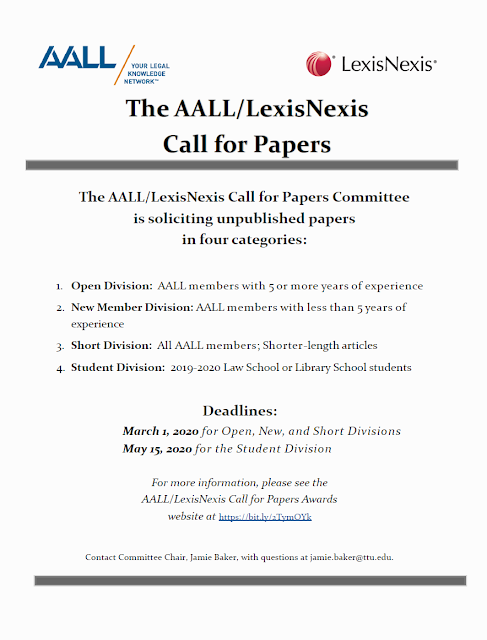Richard Redding On Legal Ed. Reform
Law Deans posted about a forthcoming article in the Catholic University Law Review by Richard E. Redding that takes a serious look at law school reform.
The abstract has been posted to SSRN. You can also download a draft of the article.
From the abstract:
"We hear much about the crisis in legal education: high tuition costs, steep declines in law school enrollment, and graduates unprepared for practice who cannot find jobs. Proposals to address the crisis appear to enjoy wide support and may be poised to dramatically change the landscape of legal education. Such reforms will harm law students and the legal profession, placing the legal academy “under erasure,” by: (1) reorienting it from an academically-grounded education towards vocational training, (2) requiring just two years of study for the J.D. degree, (3) allowing graduates of non-ABA accredited law schools to sit for the bar examination, thereby rendering accreditation a toothless mechanism for ensuring academic quality, and (4) gutting faculty scholarship."
Redding tackles the problem by saying that "[w]e need a three-year program that is more robust, one that teaches the core first-year subjects as well as applications of other disciplines (e.g., accounting, economics, psychology) to everyday law practice, exposes students to a reasonable range of specialty areas, and integrates skills training (e.g., client counseling, advocacy, drafting) throughout the curriculum. To accomplish these goals, we should adapt the medical school model to legal education. This would entail a curriculum that provides a comprehensive foundation in basic legal subjects and legally relevant other disciplines, culminating in a series of clinical rotations where the basic doctrinal and interdisciplinary knowledge is applied in practice. I also explain why we should not gut support for faculty scholarship in the hopes that doing so will cut costs and encourage professors to focus on teaching. Contrary to popular claims, engaged scholars are better teachers, and legal scholarship can contribute meaningfully and substantially (though often in ways not readily apparent) to law practice and legal reform efforts. Finally, I suggest that we address the employment problem and improve educational quality by having fewer but better law schools, producing fewer attorneys."
While I may not agree with all of Redding's claims, it is good to see a comprehensive article discussing legal education reform. We need more of these so that the best ideas can be adopted.
The abstract has been posted to SSRN. You can also download a draft of the article.
From the abstract:
"We hear much about the crisis in legal education: high tuition costs, steep declines in law school enrollment, and graduates unprepared for practice who cannot find jobs. Proposals to address the crisis appear to enjoy wide support and may be poised to dramatically change the landscape of legal education. Such reforms will harm law students and the legal profession, placing the legal academy “under erasure,” by: (1) reorienting it from an academically-grounded education towards vocational training, (2) requiring just two years of study for the J.D. degree, (3) allowing graduates of non-ABA accredited law schools to sit for the bar examination, thereby rendering accreditation a toothless mechanism for ensuring academic quality, and (4) gutting faculty scholarship."
Redding tackles the problem by saying that "[w]e need a three-year program that is more robust, one that teaches the core first-year subjects as well as applications of other disciplines (e.g., accounting, economics, psychology) to everyday law practice, exposes students to a reasonable range of specialty areas, and integrates skills training (e.g., client counseling, advocacy, drafting) throughout the curriculum. To accomplish these goals, we should adapt the medical school model to legal education. This would entail a curriculum that provides a comprehensive foundation in basic legal subjects and legally relevant other disciplines, culminating in a series of clinical rotations where the basic doctrinal and interdisciplinary knowledge is applied in practice. I also explain why we should not gut support for faculty scholarship in the hopes that doing so will cut costs and encourage professors to focus on teaching. Contrary to popular claims, engaged scholars are better teachers, and legal scholarship can contribute meaningfully and substantially (though often in ways not readily apparent) to law practice and legal reform efforts. Finally, I suggest that we address the employment problem and improve educational quality by having fewer but better law schools, producing fewer attorneys."
While I may not agree with all of Redding's claims, it is good to see a comprehensive article discussing legal education reform. We need more of these so that the best ideas can be adopted.


Comments
Post a Comment